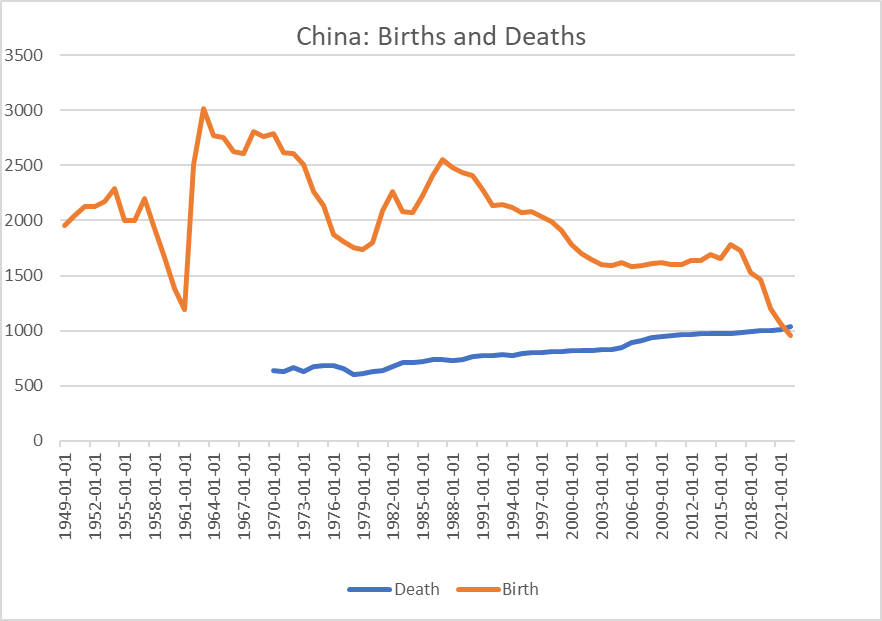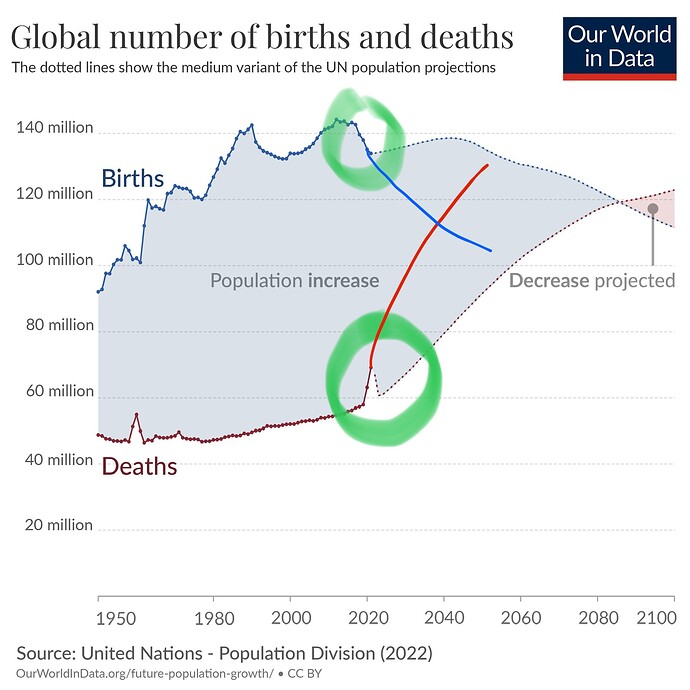One of the best predictors for economic growth is a large working-age population without children, like Japan in the 1980’s, Germany in the 2000’s, USA in 1995. Such growth, however, isn’t sustainable, because it depletes human “resources.” Dips in working populations can create shocks, such as the dearth of young workers in USSR in 1980’s.
China now has a large working-age population but there are too few kids, and the females are becoming too old to have children. Migrant workers in city dormitories can’t really have kids easily. They had a chance to make a leap, that chance has now passed.
In the past, the human “resource” have been mined forcefully before:
The question is, how do you industrialize under such conditions? Reluctance of peasants, whenever they had their own land, to become industrial workers has been discussed (Gerschenkron, Polanyi). In England they had to be literally chased from land through enclosures; in France, the process was much more overdrawn and took a century; in Germany, Poland and Hungary, large estates owned by nobility and consequent landlessness did the job. In Russia, it was bloody and occurred through forced collectivization.
Another “technique” is taking females away from investing into human resources (which is something women historically did a lot of) and into the workforce:
One of the most striking phenomena of recent times has been the extent to which women have increased their share of the labour force; the increasing participation of women in paid work has been driving employment trends and the gender gaps in labour force participation rates have been shrinking. Especially in the 1980s and early 1990s, labour force growth was substantially higher for women than for men for every region of the world except Africa. In the developed industrialized countries, increasing female labour force participation has been linked to the completion of the fertility transition.
What to do now? The west is trying to entice foreigners to move there, and work. It’s trying to sweeten the ‘package’ with multiculturalism. One can’t yet predict if this is sustainable: cultures that have proven to assimilate and be productive (such as Eastern Europe) are becoming depleted themselves. Islam, India and Africa are successfully pronatalist and taking over more and more institutions of the West.
The east is trying to develop pronatalism by technocratic mind control. The mind control apparatus looks like it could be successful:
But what can be done in the West? One of the most interesting calls is the following one:
Quitting your job, in the full sense I have described here, is a bit like quitting that agricultural life to return to a life of adventure on the wild frontier. It is a much less certain existence and a more violent one. But the combination of leisurely surplus, mortal intensity, and demand for novel virtue is where you will find life at its healthiest and highest. It is where we will find the most important destinies.

